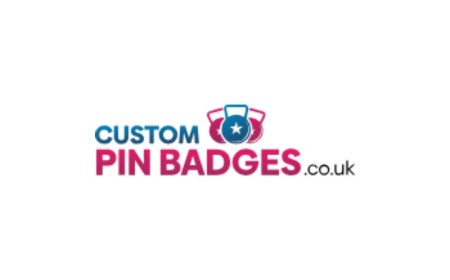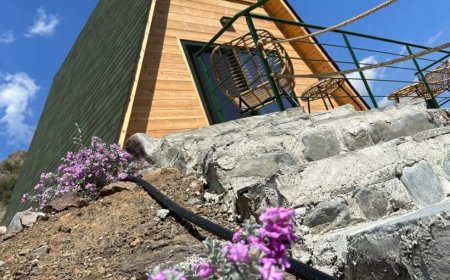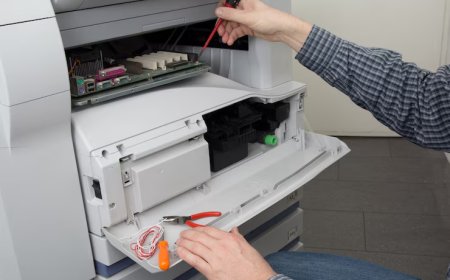How to Join Improv Comedy Classes in Columbus Washington
How to Join Improv Comedy Classes in Columbus, Washington Improv comedy is more than just spontaneous laughter—it’s a dynamic art form that builds confidence, enhances communication, and fosters creative thinking. In recent years, communities across the United States have embraced improv as both entertainment and personal development. Columbus, Washington, a small but vibrant town nestled in the P
How to Join Improv Comedy Classes in Columbus, Washington
Improv comedy is more than just spontaneous laughter—it’s a dynamic art form that builds confidence, enhances communication, and fosters creative thinking. In recent years, communities across the United States have embraced improv as both entertainment and personal development. Columbus, Washington, a small but vibrant town nestled in the Pacific Northwest, is no exception. Though often overshadowed by larger metropolitan areas, Columbus offers a growing network of improv classes, local troupes, and community-driven performance spaces that welcome beginners and seasoned performers alike.
This guide provides a comprehensive, step-by-step roadmap for anyone interested in joining improv comedy classes in Columbus, Washington. Whether you’re a shy introvert looking to find your voice, a professional seeking to sharpen your presentation skills, or simply someone who loves to laugh, this tutorial will walk you through everything you need to know—from locating the right classes to preparing for your first session. By the end, you’ll have a clear, actionable plan to begin your improv journey in one of Washington’s most welcoming small-town arts scenes.
Step-by-Step Guide
Step 1: Understand What Improv Comedy Is
Before you enroll in a class, it’s essential to understand the core principles of improv comedy. Improvisational theater, or improv, is unscripted performance where actors create scenes, characters, and dialogue spontaneously, often based on audience suggestions. Unlike traditional theater, there are no rehearsals or fixed lines—only rules like “Yes, And...,” which encourages performers to accept and build upon each other’s ideas.
Improv is not about being funny—it’s about being present, listening deeply, and collaborating. Many participants join not to become professional comedians, but to overcome social anxiety, improve public speaking, or simply enjoy the thrill of creative expression. Recognizing this distinction will help you approach your first class with the right mindset: curiosity over perfection.
Step 2: Research Local Improv Groups and Venues in Columbus, Washington
Columbus, Washington, while small, has a surprising number of arts-focused organizations that host improv programming. Begin your search by identifying the primary venues and groups operating in the area:
- The Columbus Community Theater – A nonprofit space that regularly offers beginner improv workshops and hosts monthly open mic nights.
- Laugh Line Collective – A local improv troupe that runs weekly classes and performs at regional festivals.
- Columbus Arts Council – Offers grants and listings for local arts education, including improv.
- Liberty Park Recreation Center – Occasionally hosts community theater and improv workshops through its adult education program.
Visit their official websites and social media pages (Facebook, Instagram) to check current schedules. Many of these organizations update their class calendars monthly. Look for keywords like “beginner improv,” “no experience needed,” or “all ages welcome.” Avoid classes labeled “advanced” or “audition-only” unless you have prior training.
Step 3: Attend a Free Introductory Workshop or Open Mic
Most improv programs in Columbus offer at least one free or low-cost introductory session each month. These are designed specifically for newcomers and typically last 60–90 minutes. They’re not auditions—they’re explorations.
During these sessions, you’ll engage in simple games like “Word at a Time Story,” “Yes, And... Chain,” and “Emotion Mirror.” These exercises help you relax, connect with others, and experience the rhythm of improv without pressure. Many participants report that their first free workshop was the turning point that made them feel comfortable enough to enroll in a full course.
To find these events, sign up for email newsletters from the venues listed above. You can also check Eventbrite, Meetup.com, and the Columbus Weekly Bulletin (available at the public library or online). Don’t hesitate to call or email the venue directly—staff are usually enthusiastic about helping new students find the right entry point.
Step 4: Choose the Right Class Level and Format
Once you’ve identified a few potential programs, compare their offerings. Most improv classes in Columbus follow a tiered structure:
- Level 1: Foundations – Focuses on listening, agreement, and basic game structures. Typically 6–8 weeks long, meeting once per week for 2 hours.
- Level 2: Scene Work – Builds on Level 1 by introducing character development, emotional truth, and longer-form scenes.
- Level 3: Performance – Prepares students for public performance, often culminating in a showcase for friends and family.
As a beginner, always start with Level 1. Even if you’ve performed in school plays or given presentations at work, improv operates on different principles. Many experienced performers say they wish they’d started at the beginner level too.
Also consider format: some classes are held in the evenings (6–8 PM), others on weekends. Choose one that aligns with your schedule and energy levels. Evening classes can be draining after a long workday; weekend sessions may require childcare or travel planning. Be realistic about your availability—it’s better to commit to a consistent, manageable schedule than to overextend and drop out.
Step 5: Register and Prepare for Your First Class
Registration is typically done online through the venue’s website or via a simple email confirmation. Most programs require a small deposit (often $25–$50) to secure your spot, with the remainder due on the first day. Payment plans are sometimes available—ask if you need flexibility.
What to bring:
- Comfortable clothing (no jeans or restrictive outfits—movement is key)
- A water bottle
- A notebook and pen (for jotting down insights, not scripts)
- An open mind and willingness to be silly
What not to bring:
- Perfectionist expectations
- A desire to “be funny” on purpose
- Comparisons to others in the room
Improv thrives on vulnerability. The most successful students are those who embrace awkwardness as part of the process. Your first class may feel strange—you might stumble over lines, freeze during a game, or laugh uncontrollably. That’s not failure. That’s progress.
Step 6: Show Up Consistently and Engage Fully
Attendance matters. Improv is a team sport. Missing even one class can disrupt group chemistry and make it harder to catch up. If you have to miss a session, notify the instructor ahead of time and ask for a summary of what was covered.
Engagement is equally important. Don’t sit in the back. Make eye contact. Participate in every exercise—even if you feel nervous. The more you show up as your authentic self, the more the group will respond in kind. In improv, your energy sets the tone for everyone else.
Many students report that by week three, they feel a shift. The fear of being judged fades. The group becomes a safe space. That’s when the real learning begins.
Step 7: Perform in a Showcase or Open Mic
Most Level 1 courses culminate in a low-pressure, invitation-only showcase. This isn’t a professional comedy club gig—it’s a celebration of progress. Friends, family, and fellow students are invited to watch a 15–20 minute set of scenes created entirely by the class.
Performing doesn’t mean you have to be the loudest or fastest. It means you’ve learned to trust your instincts, support your scene partners, and let go of self-judgment. Many graduates say this showcase was one of the most empowering experiences of their lives.
If your program doesn’t offer a formal showcase, ask if you can perform at a local open mic night. The Columbus Community Theater hosts “Laugh & Learn” open mics every third Friday. These are beginner-friendly, non-competitive, and often feature audience participation. It’s a great next step after your class ends.
Step 8: Continue Your Journey Beyond the Classroom
Improv doesn’t end when your class does. Many graduates continue their training by joining advanced classes, starting a home improv group, or volunteering to help with outreach programs. Here are some ways to keep growing:
- Enroll in Level 2 or Level 3 courses
- Join a local improv troupe as a supporting member
- Attend regional improv festivals like the Northwest Improv Festival (held annually in Olympia, about an hour from Columbus)
- Watch improv videos from groups like The Second City or Upright Citizens Brigade to study structure and timing
- Practice “Yes, And...” in daily life—whether at work, with family, or during conversations
Some students even start their own weekly improv meetups in parks or coffee shops. If you’re passionate, you can become the next leader in Columbus’s improv scene.
Best Practices
Practice Active Listening
One of the most misunderstood aspects of improv is that it’s about talking. In reality, it’s about listening. The best improvisers are the ones who hear not just the words, but the emotion, rhythm, and intention behind them. In class, train yourself to pause before responding. Notice body language. Reflect what you’ve heard before adding your own contribution. This skill translates powerfully into real-life communication.
Embrace Mistakes as Gifts
In improv, there are no mistakes—only opportunities. If you forget your line, mispronounce a word, or freeze for a second, that’s not a failure. It’s a chance to surprise yourself and your scene partner. The “Yes, And...” rule means you accept whatever happens and build from it. This mindset reduces fear and unlocks creativity.
Try this exercise outside of class: whenever something goes wrong—your coffee spills, your phone dies, you get lost—say aloud, “Yes, and…” followed by what you’ll do next. You’ll train your brain to respond with curiosity instead of frustration.
Stay Present, Not Perfect
Perfectionism is the enemy of improv. You don’t need to be witty, charismatic, or quick-witted. You just need to be here, now. Focus on your breath. Notice the space around you. Listen to your partner’s voice. The magic of improv happens in the gap between thought and action—when you let go of planning and simply respond.
Build Community, Not Competition
Improv is a collaborative art. There’s no “winner” in a scene. The goal is to make your partner look good. This principle fosters deep trust and connection. In class, celebrate others’ successes. Applaud bold choices. Offer encouragement. The group will reflect your energy. A supportive environment allows everyone to grow faster.
Use Improv Principles in Daily Life
Improv isn’t just for the stage. The skills you learn are invaluable in the workplace, at home, and in relationships. Use “Yes, And...” during team meetings to build on ideas. Practice “listening to respond, not to rebut” in conversations. Try “emotional truth” when resolving conflict—acknowledge how someone feels before offering a solution. These aren’t just comedy techniques—they’re life skills.
Keep a Reflection Journal
After each class, spend five minutes writing down:
- What surprised you today?
- What felt easy? What felt hard?
- One thing you want to try next time
This journal becomes a map of your growth. Looking back after a month, you’ll see patterns—fears you’ve overcome, moments of courage, connections you’ve formed. It’s a powerful tool for self-awareness.
Tools and Resources
Recommended Books
- Improv Wisdom: Don’t Prepare, Just Show Up by Patricia Ryan Madson – A philosophical and practical guide to living with improv principles.
- The Improv Handbook by Tom Salinsky and Deborah Frances-White – A comprehensive reference for games, structures, and history.
- Truth in Comedy: The Manual for Improvisation by Charna Halpern, Del Close, and Kim Johnson – A foundational text from the creators of the iO Theater.
Online Platforms
- YouTube – Search for “beginner improv games” or “improv for beginners.” Channels like Improv Everywhere and Upright Citizens Brigade offer free clips.
- Podcasts – The Improv Podcast and improvNerd feature interviews with instructors and performers from across the country.
- Zoom Workshops – Some Columbus instructors offer hybrid classes. Check with the Columbus Arts Council for virtual options if in-person attendance is difficult.
Local Resources in Columbus, Washington
- Columbus Public Library – Offers free access to audiobooks and e-books on improv, communication, and theater.
- Columbus Community Theater Box Office – Staff can provide printed schedules, class brochures, and personal recommendations.
- Facebook Groups – Search “Columbus WA Arts & Events” or “Washington State Improv Network” for local updates and peer support.
- Meetup.com – Look for “Columbus Improv Playgroup” or similar gatherings. These are informal, drop-in sessions perfect for continuing practice.
Recommended Apps
- Improv Game Generator – A free app that randomly selects improv games for solo or group practice.
- Evernote – Use it to store your reflection journal entries digitally.
- Google Calendar – Set recurring reminders for class days and open mic nights.
Real Examples
Example 1: Maria, 34, Software Developer
Maria moved to Columbus after a corporate relocation and felt isolated. She signed up for a Level 1 improv class on a whim. “I thought it would be embarrassing,” she says. “But the first game was ‘Animal Sounds.’ We all stood in a circle and made noises. I laughed so hard I cried.”
By week six, Maria was leading a scene where she played a sentient toaster giving life advice. “I didn’t know I could be that silly,” she says. “But it felt right. Now I use ‘Yes, And...’ in team meetings. My manager says I’ve become more collaborative. I even started a lunchtime improv club with coworkers.”
Example 2: James, 68, Retired Teacher
After retiring, James missed the energy of working with students. He joined a class hoping to “do something fun.” He was the oldest in the room. “I thought I’d be out of place,” he recalls. “But the instructor said, ‘Improv doesn’t care how old you are—it cares how present you are.’”
James now performs in the “Silver Liners” troupe, a group of seniors who perform at retirement communities. “We do scenes about gardening mishaps, lost dentures, and mistaken identities. People cry laughing. I’ve made friends I didn’t know I needed.”
Example 3: Aisha, 19, High School Senior
Aisha was shy and struggled with public speaking. Her English teacher recommended improv as a way to build confidence. “I thought I’d hate it,” she says. “But the first time I said ‘Yes, And...’ to a wild idea, I felt free.”
She performed in her school’s first-ever student-led improv showcase. “I didn’t get a standing ovation,” she laughs. “But I got three hugs and a note from a freshman who said, ‘I didn’t know I could be brave too.’ That’s when I knew this was bigger than comedy.”
Today, Aisha mentors new students and volunteers to teach improv at local youth centers.
FAQs
Do I need any prior experience to join improv classes in Columbus, Washington?
No. All beginner classes are designed for people with zero experience. In fact, many instructors prefer students who haven’t been trained in traditional theater—they’re more open to the spontaneity improv requires.
How much do improv classes cost in Columbus?
Most Level 1 courses range from $100 to $180 for a 6–8 week session. Some community centers offer sliding-scale fees or scholarships based on need. Always ask—many programs are more flexible than their websites suggest.
Are there age restrictions?
No. Classes are typically offered for teens (13+), adults (18+), and seniors. Some venues offer family-friendly or intergenerational workshops. Check individual listings for details.
What if I’m too nervous to participate?
Nervousness is normal—and expected. Instructors are trained to create a safe, supportive environment. You can participate at your own pace. You don’t have to shout or dance if you’re not ready. Many students start by just watching and smiling. That’s still participation.
Can I join if I have a physical disability or mobility limitation?
Yes. Improv is adaptable. Many exercises can be done seated. Communication and emotional expression are the core skills—not physical agility. Inform the instructor of your needs ahead of time—they’ll ensure the space and activities are accessible.
How long does it take to get good at improv?
There’s no finish line. Improv is a lifelong practice. Most students notice a significant shift in confidence and communication after just 4–6 weeks. Mastery comes with consistent participation over months and years.
What if I miss a class?
It’s okay. Most instructors provide a brief recap or send notes. You can also ask a classmate for a summary. The key is to return the next week. Consistency matters more than perfection.
Can I take improv classes if I’m not interested in performing?
Absolutely. Many people take improv for personal growth, stress relief, or professional development. You don’t have to perform publicly to benefit. The skills you learn—listening, adaptability, collaboration—are valuable in any context.
Is there a way to try improv before committing to a full course?
Yes. Look for free workshops, “Improv Taster Nights,” or one-time community events. These are perfect for testing the waters without financial or time commitment.
What should I do if I don’t like my first class?
Try another. Not every instructor or group has the same style. Some are more structured; others are playful and loose. Columbus has several options—explore until you find the right fit.
Conclusion
Joining improv comedy classes in Columbus, Washington, is not just about learning how to make people laugh. It’s about rediscovering your voice, building trust with others, and learning to embrace uncertainty with curiosity instead of fear. In a world that often values speed, precision, and control, improv offers a radical alternative: presence, collaboration, and play.
The journey begins with a single step—registering for a class, attending a free workshop, or simply saying “yes” to an idea you didn’t think you could try. Columbus may be a small town, but its improv community is big-hearted, inclusive, and deeply supportive. Whether you’re 16 or 76, whether you’ve never spoken on stage or you’ve performed in front of thousands, there’s a place for you here.
Don’t wait for the perfect moment. There is no perfect moment. The perfect moment is now. Show up. Say “Yes, And...” and let the rest unfold.
Your next scene is waiting.





























